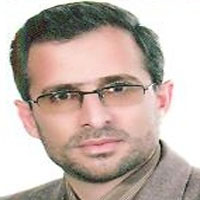A Critical Semiotic Analysis of Amal Donqol “Al-Asha al-Akhir” Based on the Textual and Metaphorical Method of Fairclough and the Method of Action Analysis of Theo van Leeuwen
Author(s):
Article Type:
Research/Original Article (دارای رتبه معتبر)
Abstract:
Semiotics which emerged in the early twentieth century by Saussure and Pierce is a science that examines linguistic signs. Semiotics is a broad and pervasive branch of divergent and convergent schools that analyzes the signs of semantic production. One of the most important branches of semiotics is social semiotics, which is based on the linguistic role of Michael Halliday and emphasizes the context of the text. The present study, which is written in an analytical descriptive manner, seeks to analyze the context of the poem “Al-Asha al-akhir” which is one of the most important poems of Amal Donqol, a contemporary Egyptian poet (1940-1983), based on the principles of social semiotics. The poem is the result of the years following the Six-Day War which was fought between Egypt, Jordan, and Syria in 1967. It depicts the turmoil and bitterness of the Arabs’ defeat and its consequences, as well as the corruption in the governments of Egypt and the other Arab countries. In this poem, the poet recounts the historical and mythological past and condemns the current situation in order to call for a change. With the aim of inducing his readers to act toward this change, the poet uses historical, religious, and mythological personalities in order to give a clear picture of his ideologies and of the situation in Egypt. The article argues that Amal Donqol, using his lingual strategies and influential power, creates an integrated critical discourse system against the domination of tyranny. He addresses social evils such as poverty, passivity, and the lack of freedom in the society, emphasizing the important role of the intellectuals in making changes in the structure of the society. In his discourse, along with the reflection of the unhealthy situation in Egypt and, in general, the Arab society, he always delegitimizes the ruling government.
Keywords:
Language:
Persian
Published:
Journal of Arabic Literatur, Volume:12 Issue: 2, 2020
Pages:
1 to 22
https://www.magiran.com/p2147267
سامانه نویسندگان
مقالات دیگری از این نویسنده (گان)
-
Descriptive Semantics of the Symbolic Meanings of "Black" and "White" in the Holy Quran in Terms of Semantic Relations
Khadijeh Zarei*, Ali Baqer Taheri Nia
Journal of Islamic Literature Research, -
Analyzing the Qur'an's linguistic arguments in the discussion of physical resurrection based on Shayim Perelman's reasoning theory
Masoume Taghizadeh, Alibagher Taheriniya *
Iranian Association of Arabic Language and Literature, Winter 2025 -
The Effectiveness Of Language In The Sophi Discourse Of Omar Abu Al-Haija Case Study: “Narrative Of The Poem Family” Collection
Hossein Elyasi Mofard, Zainab Ghasemi Asal *
Arabic Language and Literature, -
Analytical Study of "Eli Saif Bin Dhi Yazan's Letter" by Abdulaziz Makaleh Based on the Action-Oriented Approach of Greimas
Hossein Elyasi *, Zeinab Ghasemiasl
Journal of Arabic Literatur,




